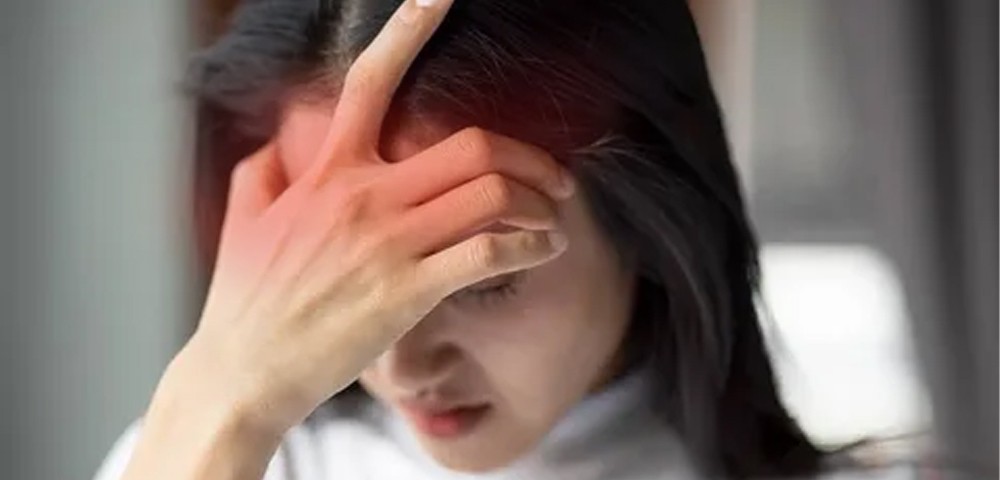
What is Giddiness?
Giddiness, or dizziness, is the sensation of feeling unsteady, lightheaded, or disoriented. It can make you feel woozy, weak, or like the world around you is spinning. Giddiness may also be accompanied by nausea or vomiting. While it’s often caused by harmless factors like dehydration, fatigue, or overexertion, it can sometimes indicate more serious health issues such as neurological problems or even a stroke. Giddiness is common and can be linked to issues with the inner ear or nervous system. Understanding the cause is key, as treatment can help manage symptoms and prevent future occurrences.
What Causes Giddiness?
Giddiness, or dizziness, can be caused by a variety of factors. It is important to understand the underlying reasons for dizziness to determine the best treatment. Some common causes include:
- Inner Ear Problems
- Vertigo: A sensation of spinning or movement, often caused by issues in the inner ear, such as:
- Benign Paroxysmal Positional Vertigo (BPPV): Short, intense episodes of spinning triggered by changes in head position.
- Vestibular Neuritis: A viral infection of the vestibular nerve that leads to constant vertigo.
- Labyrinthitis: A condition involving sudden hearing loss and vertigo, often caused by an inner ear infection.
- Meniere’s disease: A buildup of excess fluid in the inner ear that can cause vertigo, ringing in the ears, and hearing loss.
- Migraines: Some people experience vertigo and dizziness during or between migraine episodes.
- Vertigo: A sensation of spinning or movement, often caused by issues in the inner ear, such as:
- Circulation Problems
- Low Blood Pressure: A significant drop in blood pressure, known as orthostatic hypotension, can cause lightheadedness or fainting.
- Poor Blood Circulation: Conditions like heart disease, heart arrhythmia, heart attack, or transient ischemic attacks can disrupt blood flow, leading to dizziness.
- Neurological Conditions
- Disorders like Parkinson’s disease and multiple sclerosis can affect the brain’s balance control systems, causing dizziness or unsteadiness.
- Disorders like Parkinson’s disease and multiple sclerosis can affect the brain’s balance control systems, causing dizziness or unsteadiness.
- Medications:
certain medications, such as those used for seizures, high blood pressure, depression, and anxiety, can cause dizziness as a side effect.
- Other Causes
- Anxiety: Anxiety disorders often lead to feelings of lightheadedness or dizziness.
- Low Iron Levels: Anemia, caused by low iron levels, can result in dizziness due to a lack of oxygen in the blood.
- Low Blood Sugar: Hypoglycemia (low blood sugar) can cause dizziness, often accompanied by sweating and anxiety.
Dehydration or Overheating: Both dehydration and overheating can disrupt body balance, leading to dizziness.
What Are the Different Types of Giddiness?
Giddiness can manifest in several different ways, each with distinct sensations and causes. Understanding the types of giddiness can help in identifying the underlying condition. Here are the main types:
Vertigo
Vertigo is a false sensation of spinning or movement, making it difficult to maintain balance. This type of giddiness can be caused by conditions such as benign paroxysmal positional vertigo (BPPV), Meniere’s disease, vestibular neuritis, or labyrinthitis. People with vertigo may struggle with everyday activities like walking or climbing stairs.
Disequilibrium
Disequilibrium refers to a feeling of imbalance or unsteadiness, often accompanied by a fear of falling. This type of dizziness is commonly caused by ear infections, neurological disorders, or issues with the inner ear. People experiencing disequilibrium may need external support to maintain mobility.
Presyncope
Presyncope is the sensation of nearly fainting, characterized by lightheadedness and weakness. This type of giddiness can be triggered by low blood pressure, medications, or other health issues. Although you won’t lose consciousness, the feeling of presyncope can make you feel faint.
Lightheadedness
Lightheadedness is the sensation of almost fainting, often caused by low blood pressure, low oxygen levels, or rapid changes in position. It is usually brief and can be alleviated by resting for a few minutes.
Nonspecific Dizziness
Nonspecific dizziness is a feeling of weakness and unsteadiness that often stems from psychological or psychiatric concerns. It is less about physical causes and more about emotional or mental health issues.
Symptoms of Giddiness
Giddiness, or dizziness, can cause a range of symptoms, which may vary from person to person. Common symptoms include:
- Feeling Faint: A sensation of almost fainting or losing consciousness.
- Lightheadedness: A feeling of being weak or about to pass out.
- Spinning Sensation: The feeling that you or your surroundings are moving or spinning (often associated with vertigo).
- Unsteadiness: Difficulty in maintaining balance, often feeling wobbly or unsure on your feet.
- Loss of Balance: A sensation of not being able to stay upright or steady.
- Floating or Swimming Feeling: A disoriented sensation, as if you are floating or swimming.
Why choose Dr. Chinmay Kumbhar for Giddiness Treatment in Pune?
We provide comprehensive and personalized treatment for giddiness, focusing on identifying the root cause and offering effective solutions. Here’s what you can expect:
- Thorough Diagnosis: Dr. Chinmay carefully assesses your symptoms, medical history, and may conduct necessary tests to pinpoint the exact cause of your giddiness.
- Targeted Medication: Based on your diagnosis, Dr. Chinmay prescribes appropriate medications to relieve dizziness, manage symptoms, and treat underlying conditions.
- Home Remedies & Lifestyle Tips: Dr. Chinmay suggests practical home remedies and lifestyle adjustments to help reduce giddiness, such as hydration, posture correction, and diet changes.
- Balance Therapy: If required, Dr. Chinmay offers vestibular rehabilitation exercises and balance training to help improve coordination and stability, what is popularly known as CRT i.e Canal Repositioning Therapy.
- Continuous Care: Dr. Chinmay ensures ongoing support and regular follow-ups to monitor your progress and make adjustments to your treatment plan.
